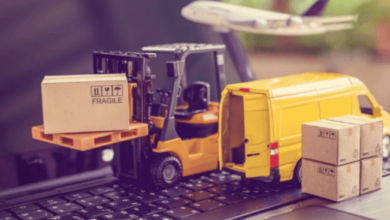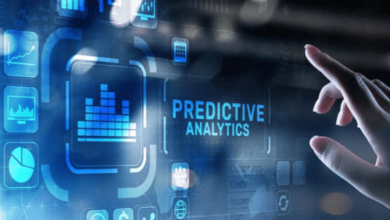How is artificial intelligence being used to enhance sustainability practices in businesses?

Introduction
Artificial intelligence (AI) has become a transformative force across various industries, offering innovative solutions to complex problems. One of the most significant applications of AI is in enhancing sustainability practices within businesses. By leveraging AI, companies can optimize resource use, reduce waste, and minimize their environmental footprint. This article explores the myriad ways AI is being utilized to foster sustainable business practices, ensuring a greener future.
The Role of Artificial Intelligence in Sustainability
AI plays a crucial role in promoting sustainability by providing businesses with the tools needed to make more informed and efficient decisions. Through data analysis, machine learning, and automation, AI helps companies streamline operations, predict trends, and identify areas for improvement.
Optimizing Resource Use
One of the primary ways AI enhances sustainability is by optimizing the use of resources. AI algorithms can analyze consumption patterns and suggest ways to reduce energy use, water consumption, and raw material wastage. For instance, smart grids powered by AI can balance electricity demand and supply, ensuring efficient energy distribution and reducing overall consumption.
Reducing Waste and Emissions
AI helps businesses reduce waste and emissions by improving production processes and supply chain management. Machine learning models can predict equipment failures and maintenance needs, preventing downtime and minimizing waste. Additionally, AI can optimize logistics and transportation routes, reducing fuel consumption and greenhouse gas emissions.
Enhancing Energy Efficiency
AI-driven systems can significantly enhance energy efficiency in buildings and manufacturing processes. Smart sensors and IoT devices, combined with AI, can monitor and control heating, cooling, and lighting systems in real-time, adjusting them based on occupancy and usage patterns. This not only reduces energy consumption but also lowers operational costs.
Sustainable Supply Chain Management
Supply chains are integral to business operations, and AI can make them more sustainable. AI-powered platforms can track and analyze every aspect of the supply chain, from sourcing raw materials to delivering finished products. This transparency allows businesses to identify inefficiencies, reduce waste, and ensure ethical sourcing.
Predictive Analytics for Environmental Impact
AI’s predictive analytics capabilities enable businesses to forecast their environmental impact and take proactive measures to mitigate negative effects. By analyzing historical data and current trends, AI can predict potential environmental risks and suggest strategies to address them.
Circular Economy Initiatives
AI supports circular economy initiatives by facilitating the recycling and repurposing of materials. Advanced AI algorithms can sort and categorize waste more efficiently, making recycling processes faster and more effective. Furthermore, AI can assist in designing products that are easier to recycle or disassemble, promoting a circular lifecycle.
Smart Agriculture and Food Production
In the agriculture sector, AI enhances sustainability by optimizing crop yields, reducing water usage, and minimizing pesticide application. Precision agriculture, powered by AI, uses data from sensors and drones to monitor soil health, weather conditions, and crop growth, enabling farmers to make data-driven decisions that boost productivity while conserving resources.
Water Management
AI technologies are revolutionizing water management practices, crucial for both industrial processes and agriculture. AI-driven systems can monitor water usage, detect leaks, and predict water needs, ensuring efficient water use and reducing wastage. These systems can also forecast droughts and water shortages, allowing businesses to plan and adapt accordingly.
Renewable Energy Integration
Integrating renewable energy sources like solar and wind into the energy grid can be challenging due to their intermittent nature. AI helps manage these fluctuations by predicting energy production patterns and optimizing energy storage and distribution. This ensures a stable supply of renewable energy and reduces reliance on fossil fuels.
Carbon Footprint Reduction
AI enables businesses to accurately measure and reduce their carbon footprint. Through advanced analytics, companies can track their greenhouse gas emissions across all operations and identify areas for improvement. AI-driven carbon management systems provide actionable insights to help businesses implement effective carbon reduction strategies.
AI in Sustainable Product Design
AI aids in designing sustainable products by analyzing material properties, manufacturing processes, and end-of-life scenarios. By considering environmental impact at every stage of the product lifecycle, AI helps create eco-friendly products that meet consumer demands while minimizing ecological damage.
Environmental Monitoring and Protection
AI-powered environmental monitoring systems can detect pollution levels, track wildlife populations, and monitor ecosystem health in real-time. This data is invaluable for businesses that rely on natural resources, enabling them to adopt sustainable practices and comply with environmental regulations.
Smart Cities and Infrastructure
AI contributes to the development of smart cities, where urban infrastructure is optimized for sustainability. AI-driven traffic management systems reduce congestion and emissions, while smart waste management systems improve recycling rates and reduce landfill usage. These innovations create more sustainable and livable urban environments.
Corporate Social Responsibility (CSR)
AI enhances corporate social responsibility efforts by providing tools to measure and report on sustainability initiatives. AI-driven platforms can track CSR activities, assess their impact, and ensure transparency and accountability. This not only boosts a company’s reputation but also fosters trust among stakeholders.
Employee Engagement and Education
AI can be used to educate and engage employees on sustainability practices. Interactive AI-driven platforms provide personalized learning experiences, encouraging employees to adopt sustainable behaviors both at work and in their personal lives. This cultural shift towards sustainability can have a significant impact on a company’s overall environmental performance.
AI in Environmental Policy and Regulation Compliance
Businesses must navigate complex environmental regulations to maintain compliance. AI simplifies this process by monitoring regulatory changes, assessing compliance risks, and suggesting necessary adjustments. This ensures businesses adhere to environmental laws and avoid costly penalties.
AI for Sustainable Marketing and Consumer Behavior
AI-driven insights into consumer behavior can help businesses promote sustainable products and practices more effectively. By understanding consumer preferences and trends, companies can tailor their marketing strategies to highlight sustainability, encouraging more environmentally conscious purchasing decisions.
Case Studies: Businesses Leveraging AI for Sustainability
Numerous businesses across various industries are leveraging AI to enhance their sustainability practices. For example, Google uses AI to optimize its data centers, reducing energy use by up to 40%. Unilever employs AI to monitor and manage water usage in its manufacturing processes, achieving significant water savings. These case studies demonstrate the practical applications and benefits of AI in sustainability.
Challenges and Future Directions
Despite its potential, the integration of AI in sustainability practices faces several challenges, including data privacy concerns, high implementation costs, and the need for skilled personnel. However, ongoing advancements in AI technology and increasing awareness of sustainability issues are likely to drive further innovation and adoption in this field.
Conclusion
AI is proving to be a powerful tool in enhancing sustainability practices in businesses. From optimizing resource use and reducing waste to enabling sustainable supply chain management and promoting renewable energy, AI offers numerous benefits that contribute to a greener future. As technology continues to evolve, the potential for AI to drive sustainable practices will only grow, making it an essential component of modern business strategy.
FAQs
How can AI help businesses reduce their carbon footprint? AI helps businesses reduce their carbon footprint by analyzing energy use, optimizing production processes, and providing insights into emission reduction strategies. AI-driven systems can track carbon emissions in real-time and suggest ways to minimize them.
What role does AI play in sustainable supply chain management? AI enhances sustainable supply chain management by providing visibility and transparency across the supply chain. It helps identify inefficiencies, reduce waste, and ensure ethical sourcing and production practices.
Can AI improve energy efficiency in buildings? Yes, AI can significantly improve energy efficiency in buildings. AI-driven systems use data from sensors and IoT devices to monitor and control heating, cooling, and lighting systems, optimizing energy use based on occupancy and usage patterns.
How does AI contribute to the circular economy? AI supports the circular economy by improving recycling processes and facilitating the design of products that are easier to recycle or disassemble. AI algorithms can efficiently sort and categorize waste, enhancing recycling rates and promoting a circular lifecycle.
What are some examples of businesses using AI for sustainability? Examples include Google, which uses AI to optimize its data centers and reduce energy use, and Unilever, which employs AI to monitor and manage water usage in its manufacturing processes. These companies demonstrate the practical benefits of AI in enhancing sustainability.
What are the challenges of integrating AI into sustainability practices? Challenges include data privacy concerns, high implementation costs, and the need for skilled personnel. Despite these challenges, ongoing advancements in AI technology and increasing awareness of sustainability issues are driving further innovation and adoption.





